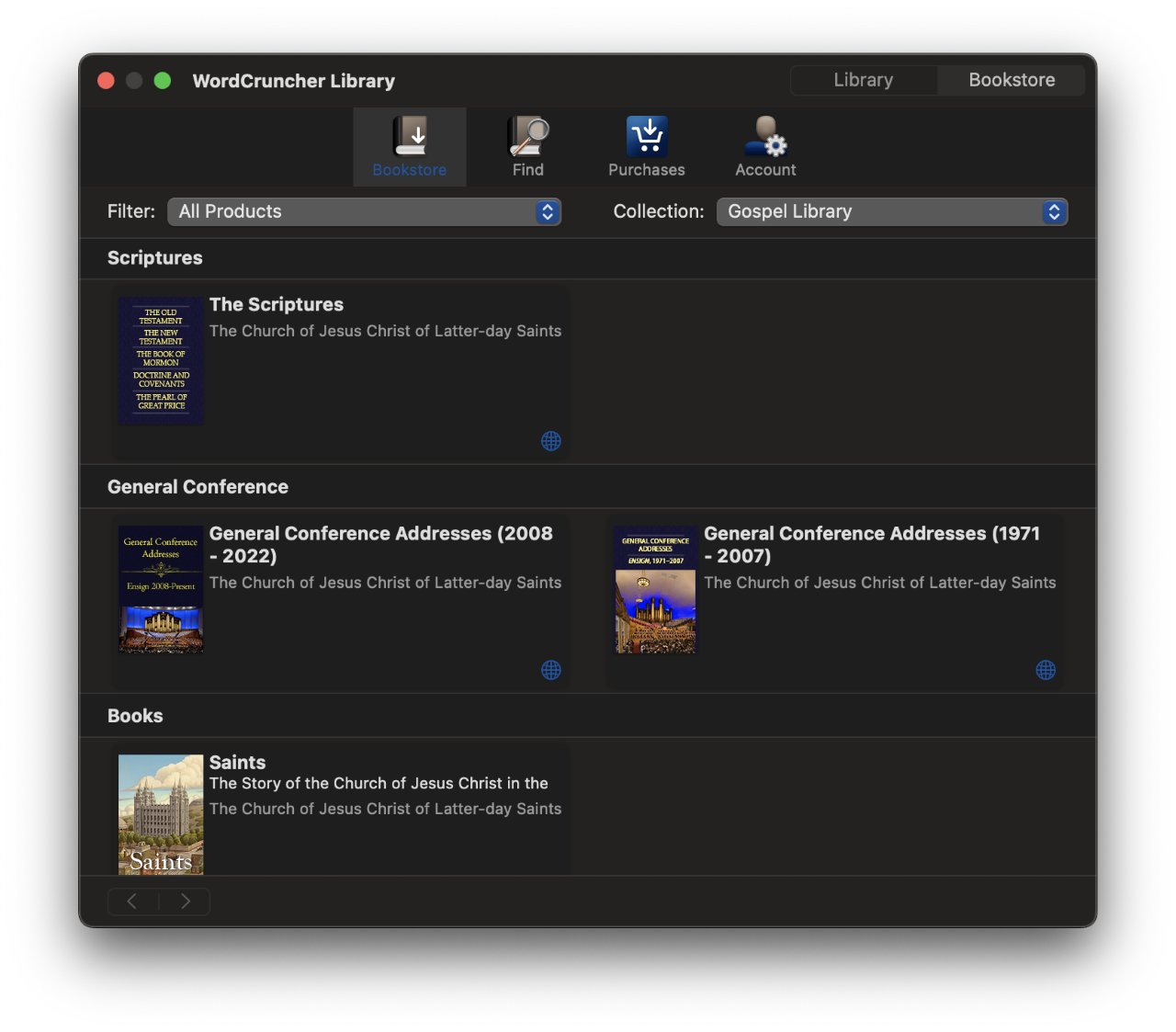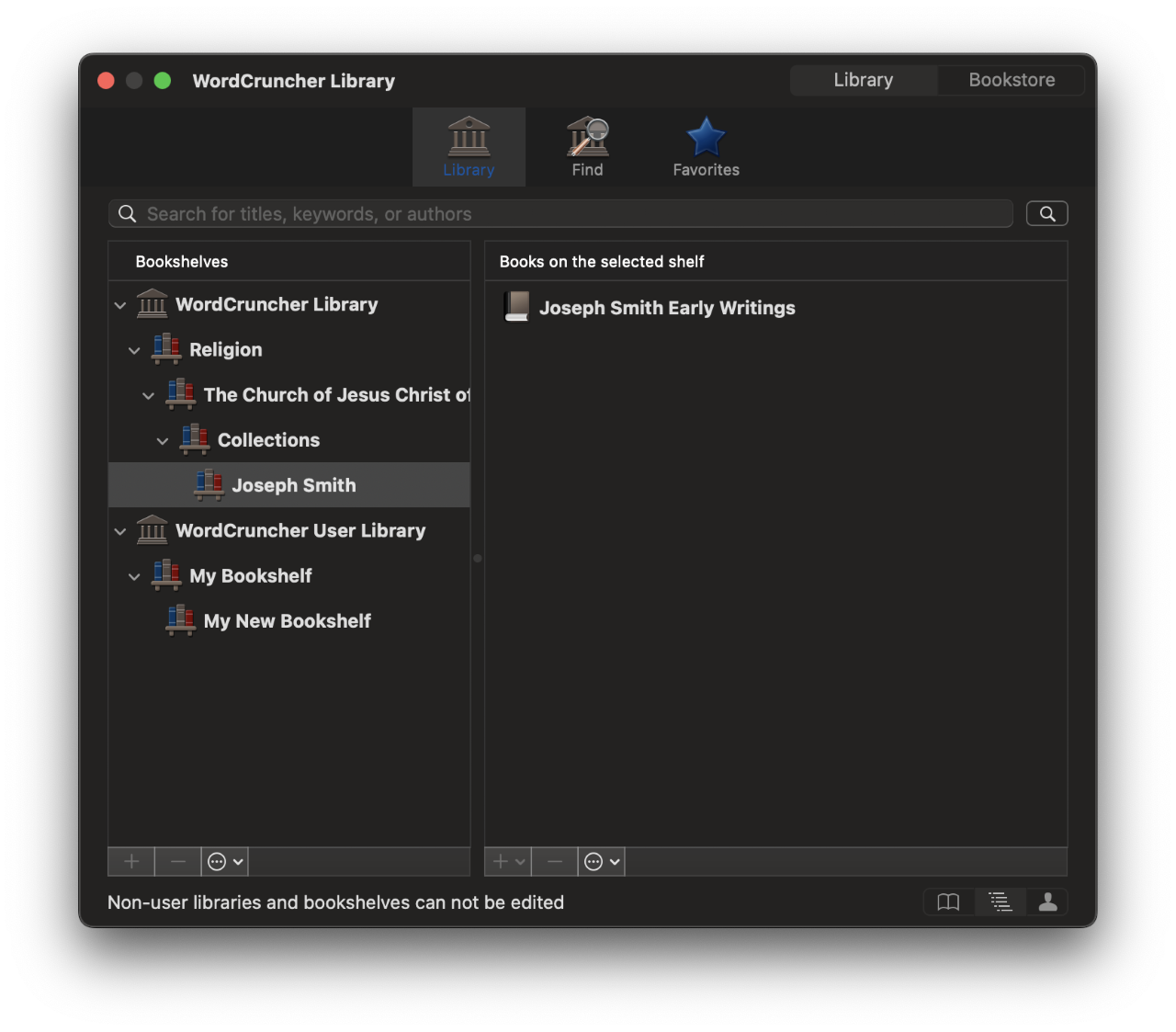The State of WordCruncher 2022
As 2022 comes to a close, you've probably all been anticipating “The State of WordCruncher,” which definitely has been something we've made in the past. If you're seeing this, then it's likely you have yet to unsubscribe from our (almost) monthly emails, which tells us that you either enjoy the monthly content or you get a thrill out of more spam in your inbox (we hope it's the former). The State of WordCruncher goes over what our team has been doing to make WordCruncher better, and what we hope to achieve in the coming year.
If you're not subscribed to monthly emails, sign up here!
Users all over the world
WordCruncher is used around the world. We believe that WordCruncher can help people discover insights into digital texts with tools not found elsewhere, so we want to share it with everyone that could need it. Our team is committed to grow a larger presence both on social media and in academic conferences.
We personally presented at two conferences in Utah and one conference in Ireland, and we know of a student from Saudi Arabia who presented at the University of Birmingham. Unfortunately, we don't always know when, where, or how people are using WordCruncher, but we'd love to hear about it. Let us know how you are using WordCruncher for research.
In 2022, WordCruncher's userbase grew by 10,748 users in 105 countries. Of those new users, 7,550 are from the United States, 670 are from Australia, and 149 are from Germany. Below is a map of the countries that have been using WordCruncher since the beginning of 2022:

Thanks to all of those that are both new and long-time users. If you love WordCruncher, then we hope you'll share it with others!
New e-books and projects
- The New Testament: A Translation for Latter-day Saints, Thomas Wayment - This is personally my favorite New Testament for its commentary, and we hope you'll enjoy it, too. Learn about the cool features that the WordCruncher book allows you to do.
- Constitution Collection - Many of the important documents for understanding the US Constitution in its historical context. This includes: The Constitution, Historical Precursors, Discussions Before and After Ratification, Early Legal Commentaries, Other Significant Documents, Founding Fathers' Library, State Constitutions, and Images.
- J. Reuben Clark Papers - The writings and biography of J. Reuben Clark.
- Saints, Volume 3 - A new installation of the history of the Church of Jesus Christ of Latter-day Saints.
- The Dead Sea Scrolls Electronic Library (DSSEL) - This is not a new book, but we received permission from the publisher to reduce the price. The Biblical Dead Sea Scrolls are now available for $79.99 (originally $199.99), and the Non-Biblical Dead Sea Scrolls are now available for $49.99 (originally $99.99).
Other collections
Several other internal collections were created by our team in 2022 that are being used for research by several research groups. These projects aren't available to the public, but you may get ideas on how WordCruncher can be used by seeing some descriptions of our private projects. This includes:
- Congressional Record - The Congressional Record is a record of the proceedings and debates of the United States Congress. It has been published daily since 1873 and is still published today. Grant Madsen's team has used WordCruncher's phrase lists feature to create dictionary lists related to different aspects of morality. In searching for those phrase lists, he found trends in the morals that Congress has focused on across various time periods.
- Brigham Young Papers - Just like the Joseph Smith Papers project, there are a lot of documents about Brigham Young. We are working with Ron Esplin to get many of the documents into WordCruncher so that editors have a repository in which they can quickly find information by date.
- Saudi Women Tweet Corpus - One researcher found us on Twitter and reached out to us to get our advice on how to identify tweets of Saudi women speaking about politics on Twitter. She presented at the University of Birmingham this year to show off how the neighborhood report helped her identify tweets where women were discussing politics the most.
Future collections
Projects continue to come our way and we are excited to publish some big titles next year. We don't always plan our projects a year in advance, but here are two that we know are coming next year:
- Collation and Analysis of Textual Variants of the Book of Mormon, Royal Skousen - This will include the computerized Collation of Textual Variants that Royal Skousen has used in his research for 20 years. It will also include the six red Analysis of Textual Variant books (4,100 pages) based on the Collation.
- The Original Text: Part of Speech Edition - The Original Text is based on the earliest sources and represents the most accurate and readable edition of the Book of Mormon. It also includes part of speech tags to help you search, study, and analyze the Original Text. The text is from Royal Skousen's The Book of Mormon: The Earliest Text, and the part of speech tags were added by Stanford Carmack.
Updates to the Windows version
Updates to the Windows version have been mostly to fix minor (or major, depending on how it personally affected you) bugs. The biggest bugs related to the search bar and notes and highlighting. If you're interested, you can check out the version history page to see every change. The year 2023 will likely bring similar kinds of maintenance updates as we find other issues, with relatively few new features added to the Windows version as we prepare a release of the Mac version.
What about the Mac?
Alright I brought it up, so what about the release date of the Mac? Last year, we made a decision to change our approach on how we developed the Mac. At that time, we had just added major changes to search by adding a way to embed part of speech to each word. It took several months to make these improvements just for the Windows, and we realized that it would take us the same amount of time to add those improvements for the Mac. We knew that if we ever wanted to expand to other operating systems, (i.e., Linux, Android, and iOS), our code library needed to change so that if we made an update, it would change it for each OS. In 2021, time was predominately spent in efforts to prepare our code library so it would be usable for both the Windows and the Macs.
2022 has then been spent on two things: 1) Fixing bugs that were inadvertently introduced to the Windows version while making this major change to our code, and 2) “Hooking up” the new code library to the Mac interface. While we know of a few more bugs in the Windows version that have affected a few users, we hope that the most pressing bugs are eradicated. We're optimistic we will have an alpha version for the Mac in the first half of 2023. What's an alpha version, you ask? An alpha is like a beta version, except we monitor the users carefully before moving it to a beta version. We want to make sure the basics of the software like reading and searching work smoothly (if not even smoother than the Windows version) before adding all of the extra reports.
At this point, Jason is working hard to get books readable. So while we don't have the Mac ready quite yet for your consumption, I can show you a screenshot of the beautiful new interface for the bookstore. And yes, these screenshots are indeed in dark mode.


About the team
You may be interested to know who contributes to the WordCruncher project. Our development team consists of three full-time employees and two part-time students. Below is a small blurb about each person's responsibilities on the team.
Monte Shelley is the director of WordCruncher, and he's been with WordCruncher since day one. He will be retiring (finally) at the end of January 2023.
Jason Dzubak is the senior software developer, and he's probably either working on building classical guitars, making hifi loudspeakers, or developing the native Mac version of WordCruncher.
Jesse Vincent is the web and e-book developer, or often called the magician. He's responsible for the website, adding books to WordCruncher, helping professors and students with projects, going to conferences/classes to talk about WordCruncher, and for writing this letter.
Spencer Young is an undergraduate student of computer science and is either helping Jason to develop the Mac version of WordCruncher or helping Jesse with anything that we ask him to do.
Lauryn Wilde is an undergraduate student studying editing and publishing. She is helping Jesse to bring WordCruncher to the world–she creates e-books, edits and updates the website, writes WordCruncher Monthly articles, and more.